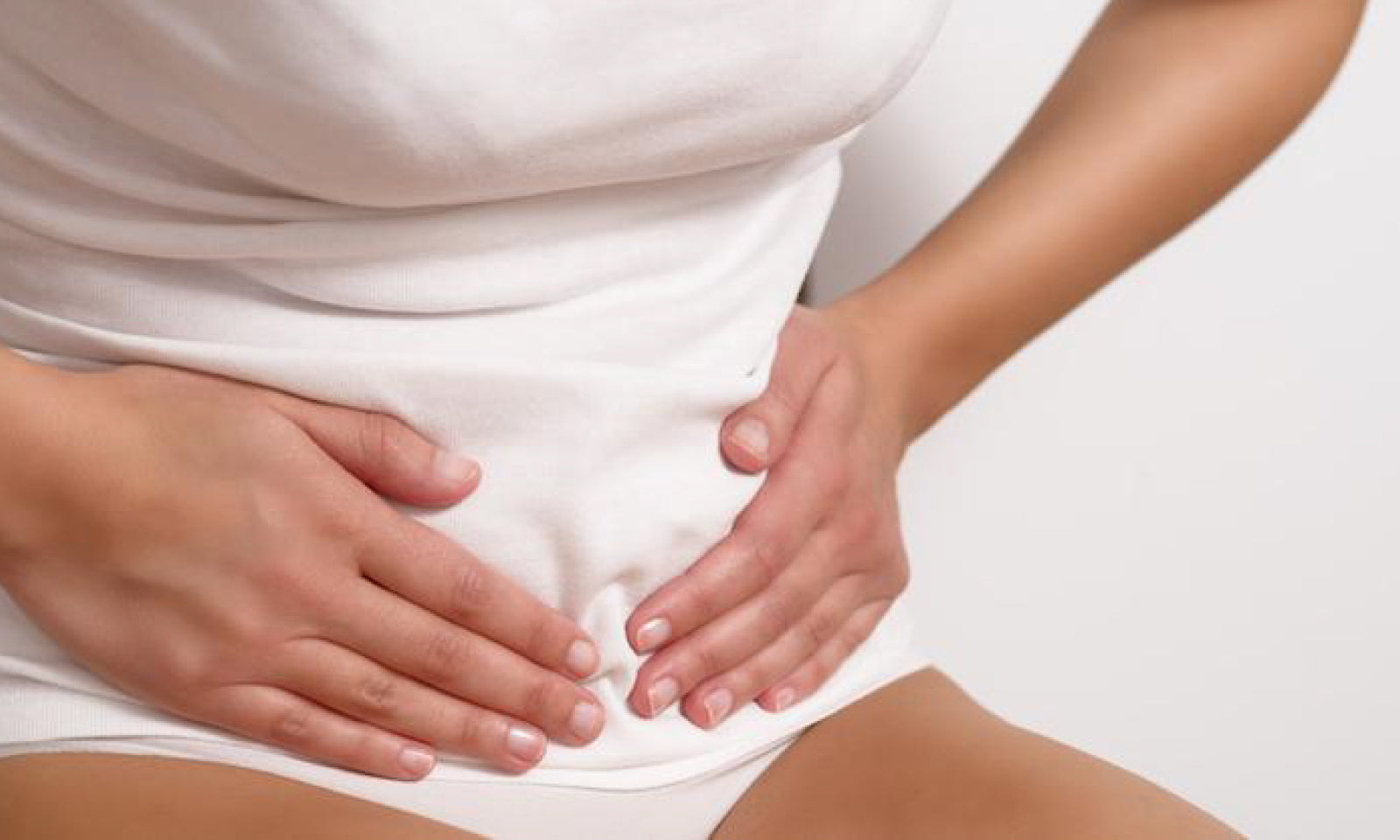Understanding Endometriosis: Symptoms and Causes

Endometriosis is a common reproductive disorder that affects 1 in 10 women in the UK. It typically occurs in people aged 18 to 35, but it’s not uncommon for it to affect girls as early as 12 or 13 years old, with symptoms arising during their first period.
We’ve heard a lot about endometriosis in the last decade, but what is it, what are the main symptoms, and how can it be treated? In this guide, we’ll tell you everything you need to know.
What is endometriosis?
Endometriosis is a condition which causes tissue that resembles the lining of the womb to grow outside the uterus. This foreign tissue can spread to other parts of the body, like the bowel and bladder, which can cause issues.
The tissue will thicken and bleed during the menstrual cycle, but with no way of leaving the body, it remains there. This is a problem, because surrounding tissue can become irritated, leading to scarring and adhesions. It can also trigger cysts to form, also known as endometriomas.
What causes endometriosis?
It’s not clear what causes endometriosis, but there are some theories which have been suggested by researchers. These theories require further testing before they can be proven definitively, but include:
Retrograde menstruation
Anyone with periods can experience retrograde menstruation. This is when some of the endometrium (lining of the womb) flows back into the pelvis during your period. It's possible that this tissue can then grow and spread, leading to endometriosis. This theory was first posited in the American Journal of Obstetrics and Gynaecology, November 1925, in an article titled Heterotopic or misplaced endometrial tissue.
Some people have argued that if the retrograde menstruation theory is correct, it should affect all people with periods. It has been proposed that some people release the tissue before it grows, while others can’t. It’s also a fact that whilst all people with periods can experience retrograde menstruation, it’s unlikely that all of them do. Therefore, because not everybody experiences retrograde menstruation, not everybody will be subject to the possible related condition of endometriosis.
Another reason people dispute the retrograde menstruation theory, is that some people develop endometriosis following a hysterectomy. As they no longer menstruate, it’s unlikely that retrograde menstruation could be the only cause of endometriosis, as it can also affect those who don’t menstruate.
Genetics
There’s evidence suggesting endometriosis can be passed down in families. If your mother or sister has endometriosis, you're at a higher risk of developing the condition, too.
An endometriosis study published in March 2023 supported this theory, and demonstrated a link between a family history of endometriosis, and the likelihood of an individual developing the condition themselves.
Weak immune system
People with endometriosis have often been found to have a weakened immune system. However, it’s unclear whether the condition itself weakens the immune system or whether people who have immune system problems earlier on in life are at higher risk.
This was further supported by the 2022 study, The Role of the Immune System in the Development of Endometriosis. However, a cause and effect relationship between a weakened immune system and endometriosis has yet to be established.
Environmental factors like mould and other toxins
Researches have suggested that environmental factors such as chemicals, mould spores, and other toxins could be a factor in the development of endometriosis. This theory was explored in the academic study Environmental Factors and Endometriosis. However, they were unable to draw definitive conclusions.
The study of possible causes of endometriosis is ongoing, as is the research into the symptoms and treatment of endometriosis.
What are the 4 stages of endometriosis?
In the UK, doctors typically refer to four stages of endometriosis. These are:
- Minimal endometriosis
- Mild endometriosis
- Moderate endometriosis
- Severe endometriosis
You would think the severity of the condition would reflect the symptoms, but this couldn’t be further from the truth. There are many people with mild endometriosis that experience severe symptoms, and there are people with moderate to severe endometriosis who have milder symptoms.
Endometriosis affects each individual who has it differently. However, complications from the condition can be uncomfortable, painful, and at worst, even life-threatening. If you are experiencing any symptoms of endometriosis, it’s important to speak with your GP as soon as possible.
What are the symptoms of endometriosis?
Symptoms of endometriosis include, but are not limited to:
- Pain during periods
- Pain during sex
- Pain when opening bowels, or urinating
- Chronic back pain
- Heavy bleeding and bleeding between periods
- Bleeding after sex
- Difficulty getting pregnant
- Nausea
- Bloating
- Fatigue
- Depression or anxiety
Some people also experience IBS-related symptoms, which is common if there is endometriosis on the bowel.
If you have any of the above symptoms, seek advice from your GP immediately. Don’t delay, as endometriosis can cause infertility and other health complications if left untreated.
How can I get a diagnosis for endometriosis?
If you are experiencing symptoms of endometriosis, you should make an appointment with your GP as soon as possible. Endometriosis can be difficult to diagnose, as it shares many of its symptoms with other similar conditions. However, your GP will support you in addressing your symptoms and can refer you to a specialist if they also suspect you may have endometriosis.
If you think you have endometriosis and are seeking a diagnosis, it’s a good idea to:
- Keep a journal of your symptoms, including when and how often you experience them
- Track your periods, either in a calendar or app
- Make your GP aware as soon as possible, and follow their advice.
Your GP may refer you to a gynaecologist, who will take the next steps towards finding the cause of your symptoms and diagnosing the underlying cause. A gynaecologist can administer an ultrasound scan, MRI scan, or laparoscopy to confirm or rule out endometriosis.
What treatment options are there for endometriosis?
Even though there is no cure for endometriosis, there are options which will allow you to manage your pain, decrease symptoms and allow you to get pregnant.
Pain relief
The first thing that many people seek is pain relief. Your GP could recommend that you take ibuprofen or paracetamol to help you manage on days when the pain is severe or interfering with your day-to-day life.
Hormonal treatment
Oestrogen is believed to encourage the growth of endometriosis, so by reducing oestrogen you could see an improvement in your symptoms. Progestogens, in the form of the mini pill, the implant or the injection, can help to control period pain, heavy periods, and other uncomfortable symptoms. However, this won’t help in all cases, and it’s not an option for anyone who is trying to get pregnant or is trying to avoid hormones.
Surgery
Surgery is the best option for anyone who is struggling to get pregnant or has more severe symptoms of endometriosis. Usually, a laparoscopy will be carried out, which is keyhole surgery. During the procedure, the surgeon will remove the endometriosis tissue by using heat or a laser. If there are cysts or endometriomas present, these will be removed as well. Many people experience relief and a decrease in their symptoms, or their severity after having surgery. It can greatly improve your chances of conceiving naturally, too.
Can endometriosis go away on its own?
There are some myths that endometriosis can go away on its own or that pregnancy can cure it. This isn’t true. While it’s possible that pregnancy can see a reduction in symptoms, it’s likely that your symptoms will return soon after childbirth.
Does the menopause cure endometriosis?
For many people, the menopause can significantly reduce their symptoms, or they might not experience any symptoms at all. This is because the body starts producing less oestrogen, which in turn, stops the body producing endometrium. However, it’s believed that 2 to 5 percent of women will still struggle with endometriosis even after menopause.
Can you get pregnant with endometriosis?
There are some concerns that endometriosis can cause infertility due to the scarring and adhesions. But the good news is in many cases, it’s still possible to get pregnant. According to Endometriosis UK, 60 – 70% of women with endometriosis will get pregnant naturally and without intervention. For those who struggle to get pregnant, surgery and IVF can greatly increase the chances, and many women will go to have healthy pregnancies. Something to keep in mind is there is a slightly higher risk of miscarriage in people with endometriosis, which will affect around 1 in 4 pregnancies. If you have any concerns, you should raise them with your GP.
Living with Endometriosis
If you are diagnosed with endometriosis, it can be a huge adjustment to your life. A chronic condition like this, with its various side effects and the impact it can have on your daily life, can feel difficult to cope with.
As well as the treatments listed above (pain relief, hormonal treatment, and surgery), you may find it helpful to read stories of other people living with the condition. Endometriosis UK published articles by people discussing their experience of living with endometriosis.
These articles may help you find alternative methods of pain relief and coping mechanisms that work for you, and help you manage your symptoms. Exercise, hot water bottles, and building a support network of family and friends have all been beneficial to other sufferers of endometriosis.
It’s also vital to keep in regular contact with either your GP or gynaecologist, so that they can help you manage your condition, and any symptoms you may be experiencing.
Support for Endometriosis
As well as managing the physical symptoms of endometriosis, as well as any pain you may be experiencing, it’s important to take care of your mental health too.
One in ten women of reproductive age in the UK have been diagnosed with endometriosis – and roughly 10% of women and people assigned female at birth worldwide. So, if your endometriosis diagnosis has left you feeling alone, we can assure you that you aren’t.
This common reproductive condition can have a significant toll on those who have it, but there are plenty of communities and resources available for people who would benefit from them. Speak to your GP, check local community spaces, and don’t be afraid to open up to friends and family if you feel comfortable doing so.
You may be surprised at how many people share the same symptoms as you, and sharing experiences and coping mechanisms can be a great way to manage your endometriosis, and strive towards a happier, healthier life.
Stay comfortable during your period
Period cramps and heavy bleeding from endometriosis can leave you feeling tired and worn out. That’s not mentioning the worry of leaks and pads shifting throughout the day.
At fluxies, we’re dedicated to ensuring all our customers feel as comfortable and confident as possible, no matter what challenges they may face.
We’ve designed our breathable, and highly absorbent period underwear to keep you safe and secure on your period, even on heavy flow days. We have a range of styles to suit you and your body type, from the classic boyshort to the seamless bikini brief – you can take your pick!
Or, for more help and advice articles, you can visit the fluxies blog to learn more about our range of products, health and wellness, and how to have a stress-free period.
- Tags: Periods



